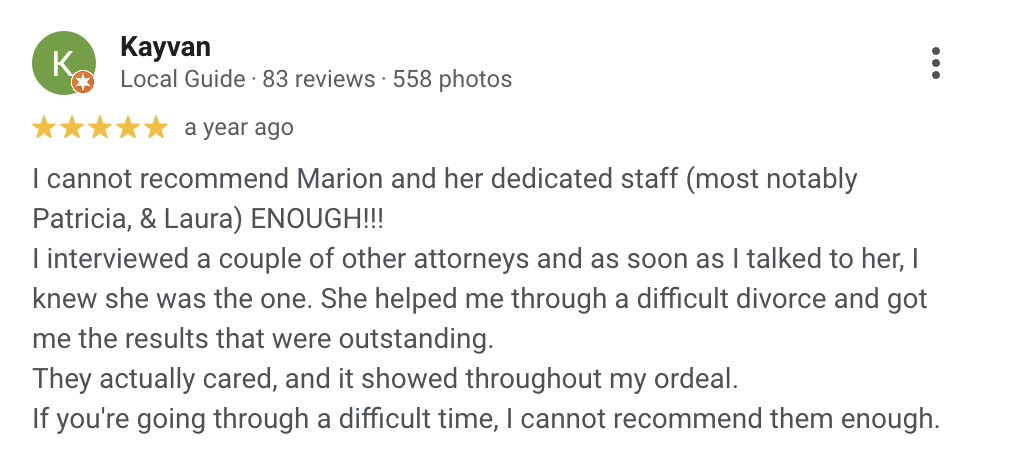Bergen County Cohabitation Agreement Lawyers

Unmarried couples are choosing to live together more and more often than ever before. Some couples do it for financial reasons or to provide a supportive environment to a child shared between them.
Cohabitation, as it’s defined by New Jersey law, does not ordinarily offer the protections of a formal marriage or civil union. The knowledgeable Bergen County cohabitation agreement lawyers at Arons & Solomon Divorce Lawyers, can help you. We know what to include in a cohabitation agreement to protect your assets and your peace of mind.
Contact our law office today at (201) 487-1199 to learn how our Bergen County divorce lawyers can assist your family. We offer free case consultations, so you have nothing to lose.
Table of Contents
How Can Arons & Solomon Help Me If I Need a Cohabitation Agreement in Bergen County, NJ?

At this juncture in your life, you may need more than simply legal advice. Unmarried couples that are cohabitating, unlike married couples, have no fiduciary duty to each other. This means neither one owes the other any financial support.
Unmarried couples in long-term, committed relationships may want to make other arrangements. They may wish to formally treat certain aspects of their lives as if they were married. To do this, unmarried couples enter into a contract, called a cohabitation agreement. It is enforceable like any other contract.
At Arons & Solomon, our Bergen County divorce lawyers have over 150 years of collective experience with issues like prenuptial agreements and spousal support.
Here’s how we can use that experience to help you if you need a cohabitation agreement or if you have one and you need to enforce it:
- Personalized legal representation. When you create an attorney-client relationship at Arons & Solomon Divorce Lawyers, you get personalized representation. We purposefully keep a selective caseload to make sure we have the resources we need to devote the appropriate time and attention to each case.
- Detailed strategic analysis and development. Most people are not very familiar with cohabitation agreements, what they can do, or how they might work. Don’t worry! We listen to your situation, ask any appropriate questions, and work with you, one-on-one, to come up with the kind of agreements that meet your needs.
- Thorough documentation. Many cohabitation agreements revolve around understandings of financial positions between the spouses. To ensure that you are fully informed of the facts of your partner’s situation, we can seek full financial disclosure on your behalf.
- Assertive negotiation and litigation services. When dealing with cohabitation agreements, emotions can be sensitive. We will negotiate for your best interests while minimizing conflict. If you need help enforcing a cohabitation agreement, we can be as aggressive as the situation requires.
There is no “standard” or “typical” cohabitation agreement, but we can help you craft one that meets your needs. Our experienced and compassionate family law attorneys are ready to get started with your case. Contact our firm today to schedule your free initial case consultation.
What Kinds of Issues Can Cohabitation Agreements Address?
Cohabitation agreements can address many of the same issues as a pre-nuptial or post-nuptial agreement. These include:
- Financial support (sometimes called “palimony”)
- Division and control of property (including pets!)
- Division of debts
It can address the rights and responsibilities of each party in personal matters, as long as the agreement does not violate public policy. Make sure that your cohabitation agreement meets your needs and complies with New Jersey’s public policy. Get an experienced Bergen County family law attorney like the ones at Arons & Solomon Divorce Lawyers to help you with your case.
Can Cohabitation Agreements Include Child Custody and Child Support?
Unmarried couples who share a child might want custody and child support provisions in a cohabitation agreement. It is usually a violation of public policy to make agreements about future child custody or child support arrangements. Instead, New Jersey law requires parents and courts to make decisions based on the best interest of the child at the present.
On the other hand, a cohabitation agreement may be used to set out something akin to a “parenting plan” for unmarried parents who live together. Again, these agreements must comply with public policy and still must be in the best interest of the child.
What Else Can Be Included in a Cohabitation Agreement?
Many things that could otherwise be handled in a valid legal contract can also be addressed in a cohabitation agreement including:
- Co-owned property
- Inheritance
- Power of attorney
- The right to make medical decisions for an incapacitated partner
The details of each of these kinds of agreements are commonly handled in legal documents. In a cohabitation agreement, partners can also lay out how the property should be handled or share authority to make decisions about each other’s medical or financial matters.
What Kind of Financial Support Can Be in a Cohabitation Agreement?
Financial arrangements are one of the most common reasons that unmarried couples seek cohabitation agreements. So-called “palimony,” which is like spousal support, is when one partner agrees to provide financial support to the other.
Like in prenuptial and postnuptial agreements, partners usually want to do this when one partner forgoes financial opportunities to provide support for the partnership, whether that means child-raising or home-making services. Since the partner would otherwise be earning money and is missing out on the experience and skills they would be sharpening in their career, the partners feel it is fair that the other spouse is compensated in some way.
Other financial agreements can include designating one spouse or the other to accept certain debts should the cohabitation end. For example, if partners live together in one partner’s family home, that partner might agree to accept all the debts associated with the home in the event that they split up.
Is a Cohabitation Agreement Like a Common Law Marriage?
Kind of, but not really. New Jersey outlawed common-law marriages in 1939. One big problem with so-called “common law” marriages was the lack of an indication that either partner wanted to be bound by the burdens of marriage.
That’s why cohabitation agreements meet the need of unmarried couples who do wish to. Unlike common-law marriages, however, cohabitation agreements demonstrate each partner’s intent to be bound by certain conventions ordinarily reserved to married couples or those civil unions.
We Handle Cohabitation Agreements Across Northern New Jersey
Arons & Solomon Divorce Lawyers has 150+ years of collective experience helping clients across Northern New Jersey navigate complex matrimonial and family law disputes.
We regularly represent clients in cases involving cohabitation agreements in:
- Teaneck
- Englewood
- Ridgewood
- Tenafly
- Franklin Lakes
- Upper Saddle River
- Allendale
- Old Tappan
- Hohokus
- Saddle River
- And other areas
Contact our Bergen County law offices to arrange a free consultation. Our New Jersey family law attorneys are here to provide you with the compassion, support, and guidance you need at this time.
Reach Out to Our Bergen County Cohabitation Agreement Lawyers Today
Our Bergen County cohabitation agreement lawyers know what is needed to get a cohabitation agreement nailed down without creating undue conflict. If you need support developing a strategy for an agreement, negotiating the terms of one, or enforcing such an arrangement, contact our office today for a free consultation.
Arons & Solomon Divorce Lawyers also provides:
- Divorce Lawyers in Bergen County, NJ
- Bergen County, NJ Child Custody Lawyers
- Bergen County, NJ Child Support Lawyers
- Spousal Support Lawyers in Bergen County, NJ
- Prenuptial Agreements Lawyers in Bergen County, NJ
- LGBT Divorce Lawyers in Bergen County, NJ
- Postnuptial Agreements Lawyers in Bergen County, NJ
- Paternity Lawyer in Bergen County, NJ
- Property Division in Bergen County, NJ
What Our Clients Are Saying About Us

Read more Google Reviews
Blog Posts You Might Find Interesting
- What’s the Difference Between Legal Custody and Physical Custody?
- When Cohabitation Threatens New Jersey Alimony
- When is a Divorce Final?
- When Is a Divorce Finalized in New Jersey, and What Does That Mean?
- Who Keeps the Ring in a Broken Engagement?
- Why Does Divorce Take So Long?
- Why Is There a Shortage of Family Law Judges in New Jersey?
- Will Tax Reform Hurt Your Alimony Agreement in New Jersey? It Depends
Visit Our Divorce & Family Law Firm in Hackensack, NJ
Arons & Solomon Divorce Lawyers – Hackensack Office
1 University Plaza Dr Suite 400
Hackensack, NJ (07601)


